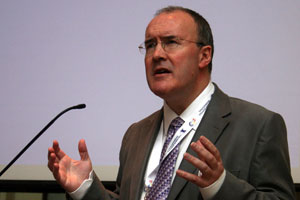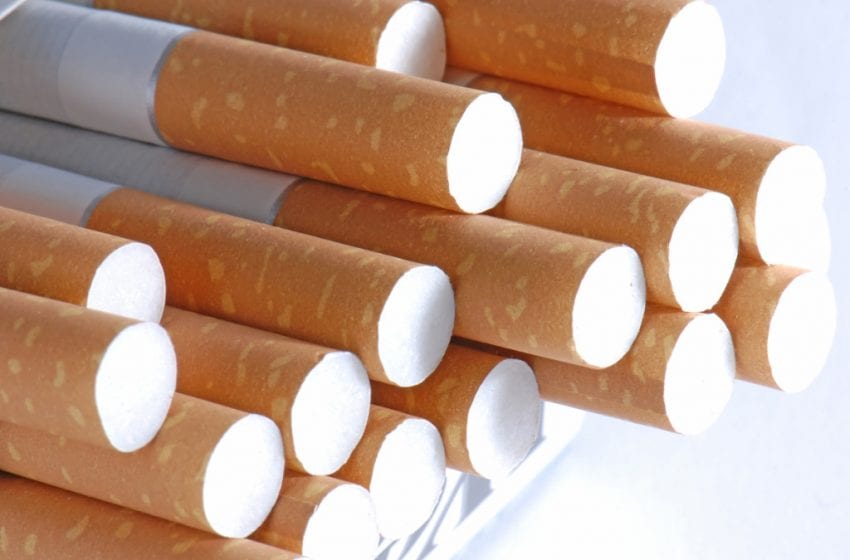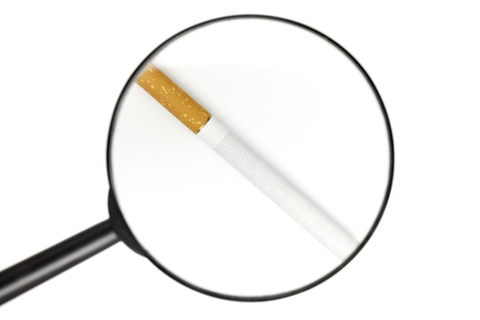A new report says Scotland must break its ‘addiction to big government and creeping prohibition’.
Published by the smokers’ group Forest, The McNanny State argues that since devolution in 1999 Scotland has become a ‘puritan’s playpen’ with politicians repeatedly intervening in the lives of ordinary people.
Highlighting the smoking ban, minimum pricing of alcohol and the named person scheme as examples of the McNanny state, the report attacks what it calls the ‘politics of intervention’.
“Public health officials moralise on our lifestyles with edicts based more on superstition than hard evidence,” said the author of the report, former member of the Scottish Parliament, Brian Monteith. “They make outrageous claims based on disreputable science that on investigation are often found to be baseless.
“With smoking and alcohol under the cosh the next big thing is going to be controlling what we eat. Portion sizes, calorie levels, and promotions that save money for those least well off will all be attacked.
“Scotland must break its addiction to big government and creeping prohibition. The country has become a puritan’s playground and it is going to get a lot worse before enough people wake up to the McNanny State and do something about it.”
The report features a foreword by journalist and novelist Allan Massie who wrote that ever since the Scottish Parliament came into being in 1999, politicians had chipped away at the liberties of the people.
“The Scottish state today treats adults as people incapable of managing their own lives and, if they are parents, as people who cannot be trusted with the unfettered care of their children,” Massie said.
“We are now in the grip of a political class that is complacently certain of its moral or ethical superiority, a class that in its ineffable conceit has no doubt that it knows what is good for us, and does not hesitate to legislate accordingly.”
Simon Clark (pictured), director of Forest, described the report as hugely topical. “The Scottish Government’s new tobacco control plan, announced last week [June 20], is another blow for those who want less not more state interference in their daily lives,” he said.
“Proposals to ban smoking in social housing and restrict the number of shops that sell tobacco represent further attacks on consumers and convenience stores that are already over-regulated to the point that they are struggling to stay in business.
“The aim of this report is to launch a national debate on the role of government in people’s lives and examine the way the issue is being addressed in political and media circles.
“Our goal is to put lifestyle choices back into the hands of consumers, not politicians and state-funded pressure groups.”
Category: Regulation

Addicted to Big Government

MRTP applications meeting
The US Food and Drug Administration has issued a Federal Register notice announcing a meeting of its Tobacco Products Scientific Advisory Committee (TPSAC) to discuss scientific issues related to the modified risk tobacco product (MRTP) applications submitted by R.J. Reynolds Tobacco Company for six Camel Snus smokeless tobacco products, which are currently under scientific review by the FDA.
The meeting is scheduled for September 13-14 at the FDA’s White Oak campus.
The role of the TPSAC is to review and evaluate scientific issues, including safety, dependence, and health issues, relating to tobacco products and provide advice, information, and recommendations to the FDA.
By law, the FDA must refer MRTP applications to the TPSAC, and the TPSAC must report its recommendations on the applications. In providing their recommendations, TPSAC members may not necessarily read the entirety of the applications.
The FDA reviews and makes the determination as to whether to authorize an MRTP, and is not required to follow TPSAC recommendations, including votes. However, the FDA takes into consideration TPSAC members’ insights, along with public comments and other information made available to the agency, before making a determination on any MRTP application.
Before the meeting, TPSAC members receive materials prepared by the FDA and the company that provide context to inform TPSAC members’ discussions, including those materials that relate to specific issues and questions from FDA staff that arose during the agency’s scientific review of the MRTP applications.
The FDA posts all materials provided to the TPSAC (redacted in accordance with applicable laws) on the agency’s website two days before the relevant meeting; so the agency intends to post the materials for the September TPSAC meeting on the FDA website on September 11.
During the upcoming meeting, representatives from R.J. Reynolds Tobacco Company and the FDA’s Center for Tobacco Products’ Office of Science will present information about the company’s MRTP applications currently under FDA scientific review. TPSAC members may then discuss available scientific evidence related to issues and questions posed by FDA about the applications. During this discussion, TPSAC voting members may vote on specific issues and questions, or on other topics arising during the committee’s discussion.
TPSAC meetings include also time for in-person public comments; and instructions on how to submit public comments to the TPSAC are to be found on the Federal Register notice.
Requests to present an oral comment at the September meeting must be received by August 16, while written comments related to the meeting must be received by August 29.
These deadlines apply only to the TPSAC meeting and do not apply to the public docket for R.J. Reynolds Tobacco Company MRTP applications. There is currently no deadline for public comments on these applications.
Let's not rush anything
Ministers have unveiled a new action plan to help Scotland meet the target of having a ‘tobacco-free’ generation by 2034, according to an STV story.
The Scottish Government’s updated plan reportedly contains 44 measures aimed at addressing health inequalities and cutting smoking rates.
It includes plans to ban smoking around hospital buildings and implement the ban on possessing tobacco in prisons.
It also outlines media campaigns around discouraging smoking in school grounds and communal stairwells, and preventing young people from taking up the habit.
Professor Linda Bauld, Cancer Research UK’s prevention expert based at the University of Stirling, said the “much-needed” plan would save lives.
“The renewed commitment in this plan to work towards a smoke-free Scotland by 2034 is welcome,” she said.
“However, if the goal of helping people to stop smoking through the new Quit Your Way service is to be truly effective, levels of investment must be maintained.
“We know that stop smoking services are the most effective way to help people quit. Smokers are around three times more likely to quit if they use these services.”
Production peccadillo
The Counter Counterfeit Committee (CCC) of Cambodia’s Interior Ministry has suspended a company’s tobacco-manufacturing operations at a factory in the Sen Sok district of Phnom Penh after officials found that it was involved in the unlicensed production of tobacco products, according to a story in The Khmer Times.
Touch Yuthea, deputy secretary of the CCC, said that officials of the Phnom Penh Municipal Court had found evidence of unlicensed production when they inspected the factory on June 18.
“We found that the facility had no permission to produce but we still don’t know if those cigarettes are fake,” Yuthea said.
A notice issued by the Phnom Penh Municipal Court’s deputy prosecutor Ngin Pich confirmed that police and CCC officials had suspended production at the factory. The notice said also that floor manager, Lin Ruibing, a Chinese national, had been questioned.
Yuthea said that, following the inspection, officials had searched for the owner, who was thought to be a Chinese national, but could not locate him.
“We are looking for the owner and other stakeholders behind this case,” he said.
“If the owner is running an illegal cigarette production facility then it is just a small offence,” he said.
“But if we find out those are fake cigarettes, then it’s a criminal offence.”
Officials confiscated packs of cigarettes with brand names such as Marlboro and LM, which are to be submitted as evidence in the case.
No trace of reality
The ‘major tobacco companies’ are acting as corporate chameleons, spending millions on make-overs, trying to convince the world they have changed when they have not, according to a story by AB Gilmore and A Rowell of the University of Bath.
The story, published as a Tobacco Control blog, said that, shattering the ‘expensive illusion’ of change was the latest evidence, published this week in Tobacco Control, that had uncovered one of their greatest scams.
Not only were tobacco companies still involved in tobacco smuggling, but they were positioning themselves to control the very system governments around the world had designed to stop them from doing so.
Their elaborate and underhand effort, implemented over years, involved front groups, third parties, fake news and payments to the international regulatory authorities meant to hold them to account.
Towards the end of their piece, Gilmore and Rowell said that many intergovernmental organisations and national tax and customs authorities around the world appeared to have swallowed, without question, the tobacco industry’s misleading version of events.
‘It is vital that they wake up and realise what is at stake: if the tobacco industry’s tricks work, they will be left in charge of the very system meant to keep them in check, the system meant to stop them from smuggling their own products, the system meant to safeguard government revenues,’ they said.
‘Yet identifying which are the industry’s latest front groups, spokespeople, linked companies or coalitions is increasingly difficult given the lengths industry will go in order to disguise these interests.
‘If there is a simple message it is this: no government should implement a track and trace system linked in any shape or form to the tobacco manufacturers. In short, no-one can trust the tobacco industry chameleons.’
Japan opting for restrictions
Japan’s Lower House has passed an antismoking bill, paving the way for its enactment and implementation before the 2020 Tokyo Olympics and Paralympics, according to a story in the Japan Times.
The bill to revise the Health Promotion Law bans indoor smoking at schools, hospitals and public institutions, with violations resulting in fines.
But the bill is said to have drawn controversy because the government has largely relaxed requirements for eateries to qualify for exemptions on indoor smoking restrictions, amid opposition from the ruling Liberal Democratic Party whose members have strong ties to the tobacco and restaurant industries.
Under the bill, smoking is prohibited in principle at eateries, offices and hotels. But such facilities may set up special rooms for the exclusive use of smokers – albeit rooms where no food or drink will be served.
Eateries with customer seating areas of up to 100 square meters and capital of up to ¥50 million are exempted from the smoking ban and are not required to set up separate smoking areas if they display a sign in front of their buildings indicating that they allow smoking.
The bill restricts also the use of heat-not-burn products by requiring eateries to set up special smoking rooms if they want to allow their customers to use such devices while they dine.
The bill is due to go to the Upper House.
Policies out of touch
Most Scots think government policies aimed at reducing smoking rates have gone too far or far enough, according to the results of a new poll.
A majority would allow smoking rooms in pubs and clubs, and permit designated smoking areas in prisons and hospital grounds.
An overwhelming majority think smoking should be allowed in the home and in private vehicles.
The public also believes the Scottish Government has more pressing concerns than tackling smoking.
The poll of 1,021 adults in Scotland was carried out by Populus for the smokers’ group Forest ahead of the announcement of the Scottish Government’s new tobacco control plan which is expected later this month.
Key findings of the poll were:- 54 percent of people think Government policies to reduce smoking rates have gone too far or far enough; 37 percent think they have not gone far enough; and nine percent are undecided.
- (12 years after smoking was banned in every pub and club in Scotland) 57 percent of people think pubs and private members’ clubs, including working men’s clubs, should be allowed to provide a well-ventilated designated smoking room, while 16 percent are opposed to the idea and 27 percent are undecided.
- (With regard to the Scottish Government’s zero tolerance policy on smoking in prisons) 66 percent of people agree that prisoners should be allowed to smoke in designated smoking areas.
- (With regard to the Scottish Government’s zero tolerance policy on smoking in hospital grounds) 56 percent of people and 82 percent of frequent smokers believe that National Health Service (NHS) hospital trusts should be allowed to provide designated smoking areas in hospital grounds for patients, visitors and staff.
- (Following calls to extend smoking bans to social housing, all private vehicles and some public parks) 86 percent of people think smoking should be permitted in the home; 74 percent think smoking should be permitted when smokers are alone in their own vehicle; and 55 percent think smoking should be allowed in outdoor public parks.
- (Smoking on stage and film and TV sets is allowed in England but not in Scotland where it was outlawed in 2006) 61 percent of respondents believe that actors should be allowed to smoke on stage in Scotland when smoking is integral to the plot or characterisation, while 34 percent are opposed to the idea.
Meanwhile, Scots believe the Scottish Government has more pressing concerns than tackling smoking. Asked to consider a list of 10 priorities for the NHS in Scotland, respondents said investing in new doctors and nurses is the most important priority and tackling smoking is the least important priority.
When it comes to local government priorities in Scotland, tackling smoking was again considered the least important priority, with maintenance of roads and bridges considered the most important.
Other findings were:- 44 percent of Scots think that tobacco taxation (which is responsible for between 80 and 90 percent of the price of a pack of cigarettes) is too high, 41 percent think it is about right and 15 percent think it is too low.
- 61 percent of respondents agreed that existing measures to reduce smoking rates should be subject to a full and independent review to consider their impact on consumers, retailers and public health before the Scottish Government proceeds with further measures to reduce the sale and consumption of tobacco products.
- 34 percent think smokers are treated unfairly by the Government, 28 percent believe they are treated fairly, and 38 percent believe they are treated neither fairly nor unfairly.
- 73 percent of regular smokers polled believe smokers are treated unfairly by the Government.
Urging the Scottish Government to “abandon its war on smokers”, Forest director Simon Clark (pictured) said the Scottish political establishment was clearly out of step with the public who supported fair and reasonable restrictions on where people could smoke, not prohibition.
“Any further regulations to tackle smoking would be a distraction from other more important issues facing central and local government in Scotland,” he said.
“The Scottish Government should listen to public opinion, abandon its war on smokers and focus on education not legislation.”
Listen to me, I'm an expert
Most Australians want electronic cigarettes legalized, according to the results of a recent survey, but the Government and anti-smoking advocates claim the devices might pose health risks, according to a story by Callum Godde for news.com.au.
The Australian Retail Association (ARA) poll, conducted by the Crosby Textor Group, shows 61 percent of 1,200 adults backed a move towards legalizing e-cigarettes or vaporisers.
ARA executive director Russell Zimmerman called on the federal Government to follow the lead of the US, UK, Canada and New Zealand by opening the market.
“More and more Australians are buying personal vaporisers with nicotine online from overseas, simply because they can’t buy them locally,” Mr Zimmerman said in a statement yesterday.
“The government needs to act so that responsible local retailers can compete on a level playing field and sell less harmful products for Australians trying to change their habits.”
Godde said the Cancer Council was ‘sceptical of the survey,’ suggesting the ARA results were ‘motivated by self-interest’.
The Council apparently urged power brokers not to be swayed by lobbyists.
“Public health policy decisions aren’t based on opinion polls,” tobacco issues committee chair Paul Grogan told AAP in a statement.
“Cancer Council supports the National Health and Medical Research Council’s ongoing independent review of the risks and potential benefits of e-cigarettes and the Therapeutic Goods Administration’s role in independently assessing any therapeutic benefit.”
Ingredients labeling sought
The American Medical Association (AMA) is calling on the federal government to ensure consumers are aware of vaping-product ingredients.
It says that ‘research shows that the use of products containing nicotine in any form among youth – including e-cigarettes – is unsafe and can cause addiction’.
‘As the popularity of electronic cigarettes continues to grow among the nation’s youth, the … AMA adopted policy at its annual meeting this week to further strengthen its support of regulatory oversight of electronic cigarettes,’ the organization said in a press note issued on June 15. ‘The new policy urges the federal government to take action to ensure consumers are aware of the ingredients and nicotine content in e-cigarettes, e-cigarette cartridges and e-liquid refills.’
“Given that e-cigarette cartridge manufacturers are not required to list the ingredients contained in their products, we are concerned that consumers have an inaccurate reflection of the amount of nicotine and type of substances they’re inhaling when using e-cigarettes,” the AMA’s president Barbara L. McAneny, M.D, was quoted as saying. “We urge the federal government to move quickly to regulate e-cigarettes and require manufacturers to list the ingredients and nicotine content on product labels – further delaying regulation will only serve to put youth at further risk. The AMA will continue to advocate for more stringent policies to help keep all harmful tobacco products, including e-cigarettes, out of the hands of our nation’s youth.”
‘Research shows that the use of products containing nicotine in any form among youth – including e-cigarettes – is unsafe and can cause addiction,’ the note said. ‘To address concerns about unknown ingredients in e-cigarettes, the new policy specifically calls for prohibiting the sale of any e-cigarette cartridges and e-liquid refills that do not include a complete list of ingredients on its packaging, and requiring that the accurate nicotine content of e-cigarettes, e-cigarette cartridges, and e-liquid refills be prominently displayed on the product labels alongside the soon-to-be-required warning, which states that nicotine is an addictive chemical.
‘According to the latest data, the use of e-cigarettes, hookah, non-cigarette combustible tobacco, or smokeless tobacco by youth is associated with cigarette smoking one year later. ‘Furthermore, the risk of progressing to conventional cigarette smoking is increased with use of multiple forms of non-cigarette tobacco, suggesting that novel tobacco products have the potential to undermine public health gains in combatting the smoking epidemic.
‘E-cigarettes were the most commonly used tobacco product among US middle school and high school students for the fourth year in a row in 2017. Among youth who had used an e-cigarette 17 percent indicated their reason for use was that they are less harmful than other forms of tobacco such as cigarettes.
‘For the last five decades, the AMA has been a proud supporter of anti-tobacco efforts ranging from urging the federal government to support anti-tobacco legislation prohibiting smoking on public transportation to calling on tobacco companies to stop targeting children in their advertising campaigns.’
False warnings planned
A majority of South Koreans support higher taxes on heat-not-burn (HNB) products, according to a story in The Korea Herald citing the results of a poll published on June 17.
The poll, which was said to have been carried out among about 1,000 adults by market research institute Trend Monitor, found that 55.6 percent of respondents agreed with the government’s move to raise taxes on HNB cigarettes.
In December, the National Assembly passed a bill to increase taxes on HNB products from 528 won (US$0.50) to 897 won per pack.
Tobacco manufacturers and the government have been tussling over the latter’s move to impose stricter regulations on HNB products, including the latest decision to require HNB products to carry the same graphic warning images as combustible tobacco products carry, starting December 2018.
The Herald said that, despite HNB cigarettes being marketed as a less harmful replacement for conventional cigarettes, most of the respondents to the poll said they regarded HNB cigarettes as unhealthy.
About 80 percent said HNB cigarettes were as harmful as conventional cigarettes.
Nearly 13 percent said HNB cigarettes were helpful in quitting smoking, and, among current HNB product users, that figure rose to 34.8 percent.
With regard to the government’s recent analysis of the safety of HNB cigarettes, 81.9 percent said there should be a more objective safety test on HNB products.
Almost 74 percent of HNB users said they chose these products because they did not smell in the same way as traditional cigarettes smelt, while 3.1 percent cited the products’ ability to help them cut down on smoking and 31.7 percent cited them as a useful aid in quitting smoking.









